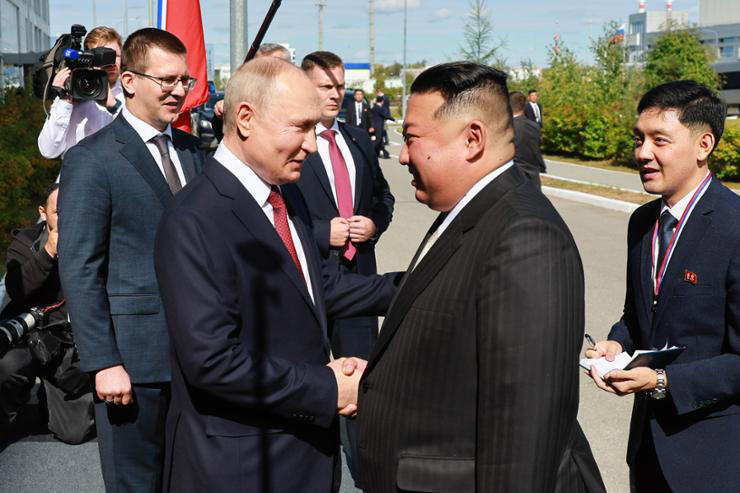The recent pause in North Korea’s military provocations has raised speculation among analysts about the country’s motives. Some suggest that this silence could be linked to North Korea’s focus on exporting weapons and munitions to Russia, potentially resulting in shortages domestically. This shift in behavior is notable given North Korea’s previous aggressive posturing, which included test-firings of new missile systems and underwater nuclear weapon trials.
At the beginning of the year, North Korea’s actions signaled a departure from leader Kim Jong-un’s earlier efforts to reconcile with South Korea. However, since February 14, when it fired multiple cruise missiles, the country has refrained from further military provocations.
According to military expert Yang Uk, the pause in provocations may be attributed to North Korea’s prioritization of weapon exports to Russia. This strategy allows North Korea to capitalize on the economic benefits of weapon sales, potentially leading to shortages of feasible weapons domestically. As a result, the country is utilizing all available means to export its arsenal, maximizing its economic gains from the arms trade.
North Korea’s recent focus on deepening military cooperation with Russia aligns with its efforts to bolster economic and diplomatic ties. Following Kim Jong-un’s meeting with Russian President Vladimir Putin in September last year, discussions reportedly centered on exchanges of weapons and military technology between the two nations.
Shin Jong-woo, a senior researcher at the Korea Defense and Security Forum, highlights North Korea’s strategic intent to benefit both economically and diplomatically from providing weapons to Russia amidst its conflict in Ukraine. Reports suggest that North Korea has offered a variety of weapons to Russia, including artillery shells, multiple rocket launchers, and short-range ballistic missiles. Additionally, North Korean scientists and engineers may have been dispatched to Russia to gather operational data.
South Korean Defense Minister Shin Won-sik has estimated that Pyongyang sent approximately 6,700 containers to Moscow, believed to contain 3 million rounds of 152-millimeter shells. This exchange underscores North Korea’s active engagement in providing military support to Russia, potentially leading to economic gains for Pyongyang while strengthening bilateral relations between the two countries.
The absence of military provocations from North Korea during the annual combined military exercise between South Korea and the U.S. has not gone unnoticed. Historically, North Korea has responded to such drills with denunciations and military displays, often viewing them as rehearsals for invasion.
Despite the current silence, experts remain cautious, anticipating that North Korea may resume missile tests or other provocative actions in the near future. Yang Uk suggests that North Korea could resume military provocation during or after the combined military drills, particularly if the U.S. deploys its strategic military assets to the Korean Peninsula.
Shin Jong-woo echoes this sentiment, emphasizing that while the intensity of provocative rhetoric has decreased, North Korea may still resort to retaliatory actions in response to perceived threats or provocations. This suggests that while the current lull in tensions may persist for now, the situation on the Korean Peninsula remains fragile, with the potential for escalation ever-present.
